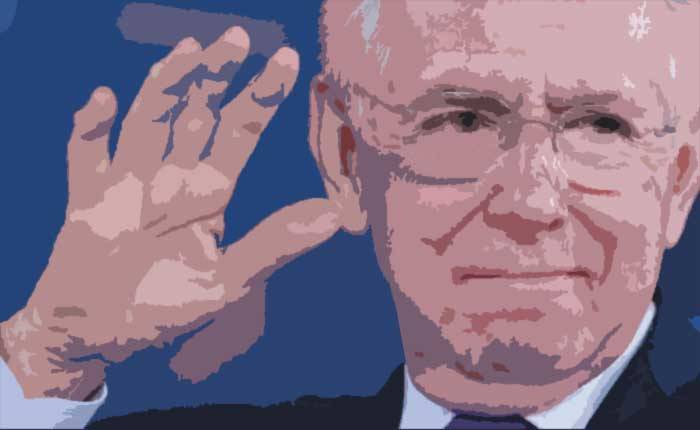Election-shock: Monti Bows Out
On Friday Berlusconi announced that he will return as leader the center-right. "I play to win," he added. "I always have." But so does Monti, and within twenty-four hours he was at the Quirinal Palace to inform President Giorgio Napolitano that his year-old emergency government will exit by the end of this month, albeit only after Parliament approves the government's budget, known as the "financial stability law." National general elections, slated to take place at the end of the normal five-year mandate next spring, will therefore be anticipated, perhaps as early as February.
Lacking a miracle, the elections will take place under the old Porcellum (piggish) law. Promoted by Berlusconi and adopted in 2005, this law makes selection of candidates the exclusive prerogative of the party bosses, and awards a generous premium of members of parliament to the winning coalition, or 340 guaranteed seats out of 630. The very real possibility, moreover, is that President Napolitano will similarly speed up his resignation so that the newly-elected assembly will be the one that will choose the new president.
The unexpected news of Monti's swift and "irrevocable" decision came as a shock. Many in business and political Italy are already expressing deep concern at the demise of the Monti government for its implications for the Italian economy when the markets reopen Monday. Even before Berlusconi trumpeted his return, the political atmosphere had turned sour, and on Thursday the markets were already reacting negatively. During his difficult year in office, Monti has been able to reassure international markets and restore some of the Italian prestige tarnished by the previous years of political scandal, both personal and financial. "Greatly destabilizing," was the comment on Berlusconi's announcement in the financial daily Il Sole-24 Ore. Although few had entirely counted Berlusconi out, even fewer had believed that Monti would react so swiftly and incisively.
The polls help to explain why. The pollsters employed by Il Popolo della Liberta' (PdL) claim that their consensus stands at around 27% vis a vis the 26.1% of Pier Luigi Bersani. But most others disagree and put the PdL figure at as low as 13%, partly because in the course of the past two years Berlusconi's party has alienated its original bedfellows in the Northern League as well as those in Alleanza Nazionale led by the president of the Chamber of Deputies Gianfranco Fini. At the same time, as commentators like Claudio Tito of La Repubblica have warned, Berlusconi is the sole figure capable of reassembling the center-right alliance which first put him in power in April 1992. The latest poll, announced by Gad Lerner last week, has Bersani's PD at circa 33%; Beppe Grillo's Movimento Cinque Stelle (M5S) at 17% and Berlusconi's PdL at around 15%, slightly higher than in previous weeks. All other parties - and they include potential allies for both Bersani and Berlusconi - fall well below.
If the pollsters are correct, and if elections take place under the Porcellum law, as is likely at this point (in five years Bersani & Co. have failed to impose its revision), the left coalition would trump the center-right easily. The PD can probably count on 263 seats and Nicchi Vendola's SeL, 49. Under the generous terms of the Porcellum, their total of 311 seats would be magically multiplied to 340 seats, a handy majority in Parliament. The Catholic-oriented UDC of Pierferdinando Casini moreover has 30 seats and is another potential coalition partner. This analysis is by Donato De Sena in Giornalettismo, who claims that Berlusconi therefore cannot win, see: http://www.giornalettismo.com). On the other hand, the complex Senate rules for the Senate show an entirely different picture, and Berlusconi's playing to win is presumably aimed at the Senate rather than the Chamber, where a Bersani victory can, at this writing, appear inevitable.
In fact, when the PdL nominal party chief, Angelino Alfano, addressed Parliament last week, he announced that Italy's debt, unemployment and tax rates had all risen even as the economy sank like a stone because Monti had taken over from Berlusconi as premier of a non-elected cabinet. In short, it was Monti who had taken the country into near-bankruptcy, rather than saved it. Berlusconi's role therefore will be to present himself as saviour of the nation.
One man's unseemly but understandable reaction in Parliament was to hurl a cushion at Alfano. So is there anything to cushion this new situation? It may be that time is the cushion, explaining why Monti sped up his departure. The government's unpopular economic measures are inevitable, and employment statistics will continue to bring anguish. The longer Monti stays in office, therefore, the longer his government will be a target for Berlusconi and his backers, eager to foster what political scientists call 'a negative coalition" of disgruntled businessmen, unaccustomed to paying taxes, and a confused electorate ready and willing to believe that the Euro is responsible for their problems. Most importantly, his gesture frees Monti for his own political future.





































i-Italy
Facebook
Google+
This work may not be reproduced, in whole or in part, without prior written permission.
Questo lavoro non può essere riprodotto, in tutto o in parte, senza permesso scritto.